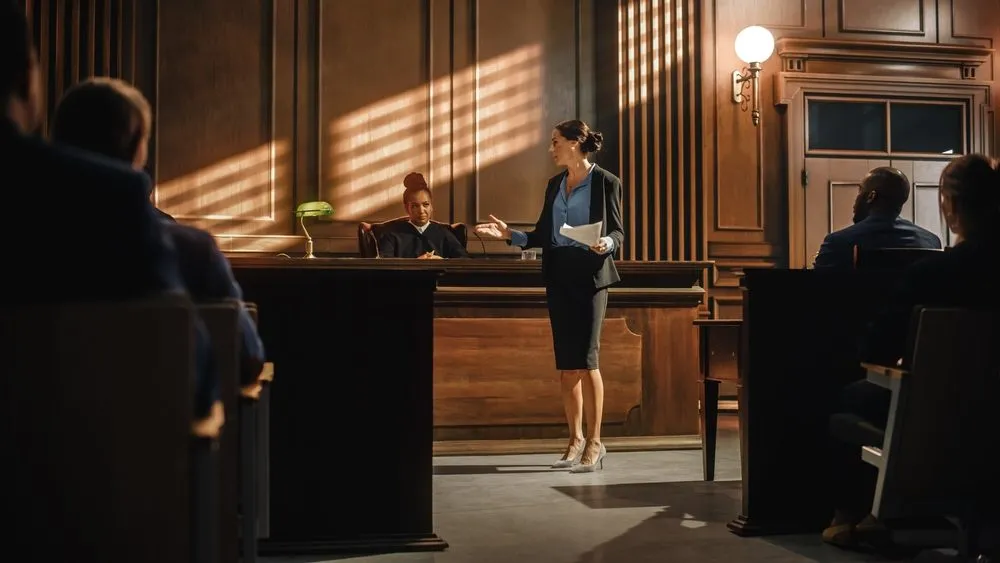
What is a Clerk Magistrate Hearing? A Clerk Magistrate’s Hearing is a critical pre-arraignment proceeding in the Massachusetts criminal justice system. It serves as an important gateway, determining whether a criminal complaint will be formally issued against an individual.
Having a Massachusetts clerk magistrate hearing lawyer is extremely beneficial for those facing this situation. Since the outcome can have significant implications for your future, understanding the purpose and process of these hearings is essential. Learn the basic overview of what this hearing entails from commonly asked questions and answers.
If you are facing potentially being criminally charged, legal help is available 24/7.
Can I Represent Myself in a Clerk Magistrate’s Hearing?
Yes, you have the right to represent yourself in a Clerk Magistrate’s Hearing. However, it is generally advisable to have an experienced Massachusetts criminal defense attorney represent you, as they can navigate the legal complexities and effectively advocate on your behalf.
For a free legal consultation, call (781) 740-0800
How Is a Clerk Magistrate’s Hearing Different from a Criminal Trial?
The key difference is that a Clerk Magistrate’s Hearing is a pre-arraignment proceeding, while a criminal trial is the final stage of the judicial process. During a Clerk Magistrate’s Hearing, the focus is on establishing probable cause rather than determining guilt or innocence beyond a reasonable doubt, as in a trial.
What Happens if I Fail to Attend the Hearing?
If you fail to attend the Clerk Magistrate’s Hearing, the Clerk Magistrate may proceed in your absence and potentially issue a criminal complaint against you. It is crucial to make every effort to attend the hearing and have your voice heard.
Click to contact our criminal defense lawyers today
Can I Request a Continuance for a Clerk Magistrate’s Hearing?
Yes, you or your attorney may request a continuance or postponement of the Clerk Magistrate’s Hearing. The Clerk Magistrate has the discretion to grant or deny such a request, depending on the circumstances and the reasons provided.
Complete a Free Case Evaluation form now
How Long does a Clerk Magistrate’s Hearing Typically Last?
The duration of a Clerk Magistrate’s Hearing can vary, depending on the complexity of the case and the amount of evidence presented. Most hearings may last only a few minutes, while others sometimes extend for several hours or even multiple sessions.
The Role of the Clerk Magistrate
Clerk magistrates are judicial officers responsible for overseeing certain pre-trial proceedings, including Clerk Magistrate’s Hearings. They are appointed by the Chief Justice of the District Court and must meet specific qualifications, such as being a member of the Massachusetts Bar.
When and Why Is a Clerk Magistrate’s Hearing Held?
A Clerk Magistrate’s Hearing is typically held when a law enforcement agency or a private individual files a criminal complaint against an individual. The hearing determines whether there is sufficient probable cause to formally charge the person with a criminal offense.
The Process of a Clerk Magistrate’s Hearing
The Clerk Magistrate’s Hearing process begins with the issuance of a notice to the defendant, informing them of the date, time, and location of the proceeding.
During the hearing, the Clerk Magistrate will review the evidence presented by the prosecution and any arguments or evidence presented by the defendant or their attorney. This includes the examination of witnesses and the evaluation of physical or documentary evidence.
Burden of Proof in a Clerk Magistrate’s Hearing
The burden of proof in a Clerk Magistrate’s Hearing is the “probable cause” standard, which is a lower threshold than the “beyond a reasonable doubt” standard required for a criminal conviction.
The Clerk Magistrate must determine whether the evidence presented is sufficient to believe that the defendant likely committed the alleged offense.
Possible Outcomes of a Clerk Magistrate’s Hearing
The possible outcomes of a Clerk Magistrate’s Hearing include:
- The issuance of a criminal complaint
- The dismissal of the case
- The imposition of certain conditions or recommendations
If a criminal complaint is issued, the case will proceed to the next stage of the criminal justice process.
The Importance of Legal Representation in a Clerk Magistrate’s Hearing
While you have the right to represent yourself, it is generally advisable to have an experienced criminal defense attorney represent you so that you always know what to expect at a Magistrate Hearing.
An attorney can help you prepare for your hearing, present evidence, and arguments effectively, and explore all available options for a favorable outcome.
Appealing the Decision of a Clerk Magistrate’s Hearing
If you are dissatisfied with the Clerk Magistrate’s decision, you may have the opportunity to appeal the ruling. The grounds for appeal and the process can vary, so it is crucial to seek legal advice to understand your rights and the best course of action.
Do You Need Legal Help With Your Clerk Magistrate Hearing?
Navigating the complexities of a Clerk Magistrate’s Hearing can be overwhelming, but with the right knowledge and legal representation, you may get the outcome that you seek.
Contact Nate Amendola Defense to fully understand what a Clerk Magistrate Hearing entails and ways to mitigate a formal criminal complaint from happening.
Call or text (781) 740-0800 or complete a Free Case Evaluation form




